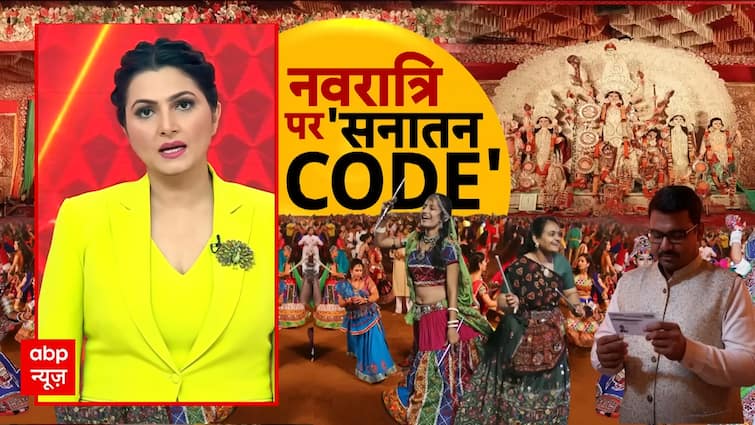Navratri celebrations have once again sparked heated debates across India, centered on two main controversies. The first involves demands to close meat shops during the nine-day festival to respect Hindu religious sentiments. In Delhi, BJP MLA Tarvinder Singh Marwah took matters into his own hands, forcibly shutting down meat shops and deploying volunteers to ensure they remain closed throughout Navratri. While supporters argue this protects Hindu faith, critics call it authoritarian and question why similar restrictions aren’t applied to non-vegetarian dishes served in hotels. The second controversy concerns restrictions on Muslim youths entering Garba pandals, traditional venues for Navratri dances. Organizers in various cities have implemented a “Sanatani code,” requiring visitors to undergo five religious identity checks: applying tilak, tying kalava (sacred thread), drinking holy Ganga water, sprinkling cow urine, and bowing to an image of Lord Varaha. Signs warning “Jihadis not allowed” are displayed, fueled by fears of “Love Jihad.” These incidents highlight rising religious tensions and moral policing during Navratri. While many seek to protect religious traditions, such actions risk deepening social divides and infringing on constitutional freedoms. The debate continues as India navigates the complex balance between faith and pluralism.



